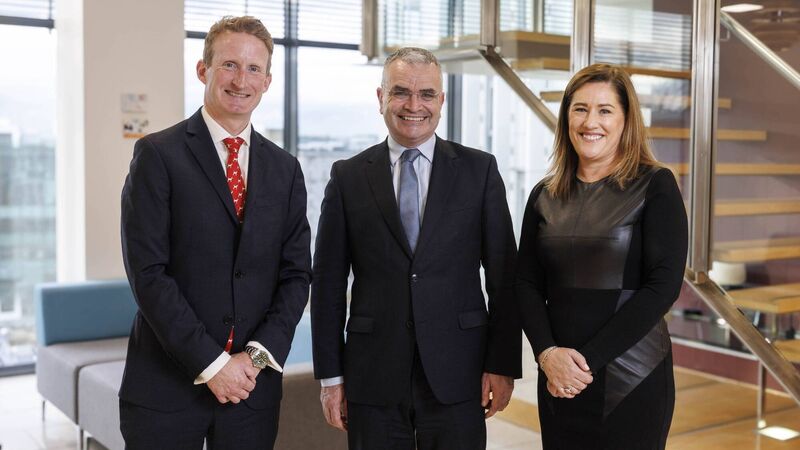Firms urged to get payroll data ready for new pensions scheme

Stephen Gillick, Mason Hayes & Curran, Minister for Social Protection, Dara Calleary, and Melanie Crowley, Mason Hayes & Curran, at a business event discussing My Future Fund, the State’s new retirement savings system.
Employers need to ensure that payroll systems, HR policies and employee communications are carefully aligned ahead of the start of the My Future Fund pension scheme in January.
The new auto-enrolment pension scheme will see employees aged 23 to 60 who are earning over €20,000 per year, automatically enrolled if they’re not already in a qualifying pension scheme.











